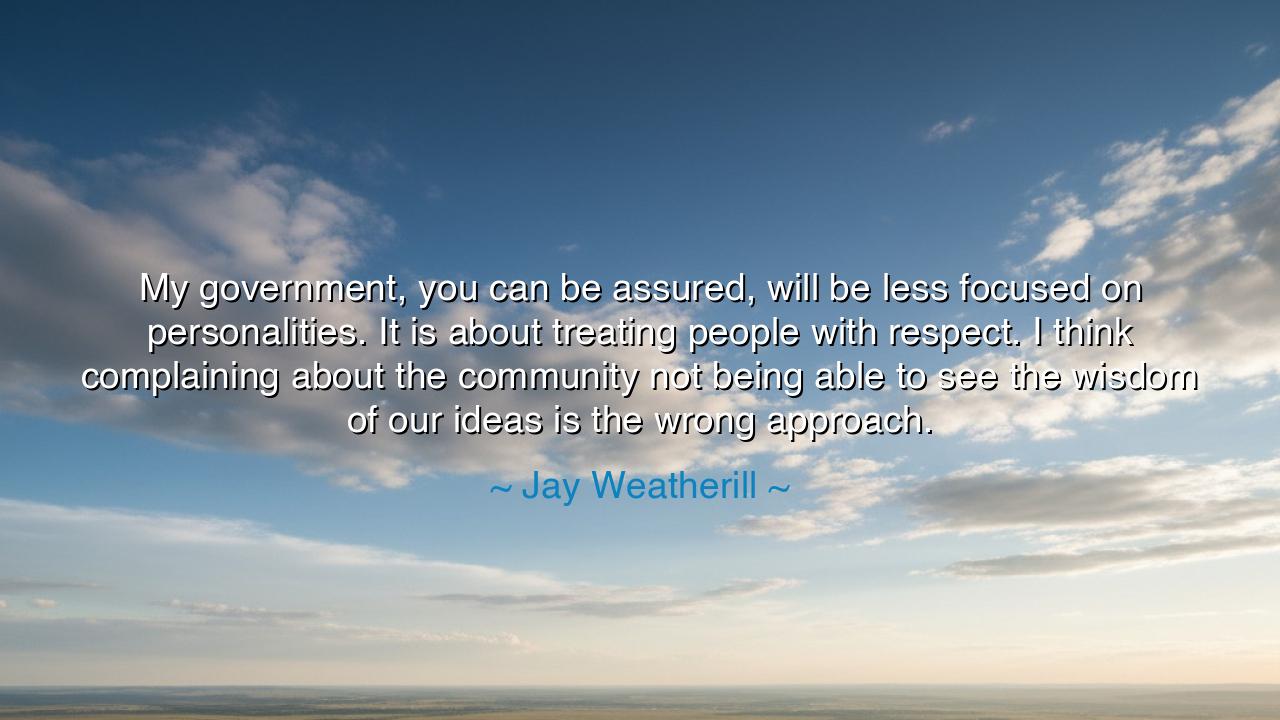
My government, you can be assured, will be less focused on
My government, you can be assured, will be less focused on personalities. It is about treating people with respect. I think complaining about the community not being able to see the wisdom of our ideas is the wrong approach.






Jay Weatherill, with the voice of a statesman mindful of the people’s trust, once declared: “My government, you can be assured, will be less focused on personalities. It is about treating people with respect. I think complaining about the community not being able to see the wisdom of our ideas is the wrong approach.” In these words shines the essence of true leadership: that governance is not the elevation of the self, but the service of the many. For to dwell on personalities is vanity, but to honor the people with respect is the foundation of just rule.
The ancients long understood this truth. When rulers exalted themselves above their communities, their thrones crumbled. But when they listened with humility, their reigns endured. The great danger in governance is arrogance: to believe one’s own ideas so enlightened that the people’s doubt must be blamed on their blindness. Yet wisdom teaches otherwise—it is not for leaders to scorn the people, but to persuade, to serve, and to embody the virtues they would see reflected in their land.
Consider the tale of Pericles of Athens, who in his famous orations did not berate the citizens for failing to grasp his vision. Instead, he uplifted them, speaking of their shared destiny, their common dignity. By treating his people with respect, he transformed Athens into a beacon of art, philosophy, and democracy. Had he complained of their ignorance, he would have lost them; but by honoring them, he won their loyalty and built a culture that still shines in memory.
Weatherill’s words also remind us of the eternal peril of ego in politics. Many rulers fall into the trap of worshiping their own image, mistaking the contest of personalities for the work of leadership. But a government is not a theater for vanity; it is a covenant of service. To complain when the people do not agree is to forsake this covenant, for the true leader seeks not to be adored but to build understanding.
Let the generations remember: a ruler’s greatness is not measured by his brilliance alone, but by his respect for those he governs. To treat the community with honor, even when it resists, is to plant seeds of trust that may one day bear fruit. Weatherill’s teaching is a reminder for all who seek to lead: cast aside the idol of personality, abandon complaint, and walk humbly with your people. For only in respect is there enduring strength, and only in humility does wisdom truly rule.






AAdministratorAdministrator
Welcome, honored guests. Please leave a comment, we will respond soon